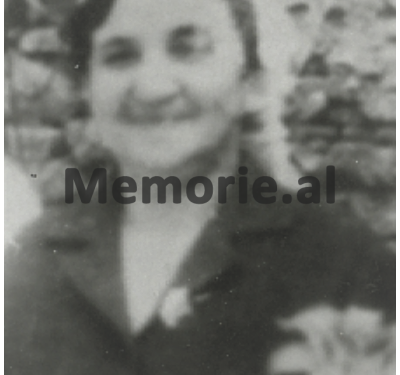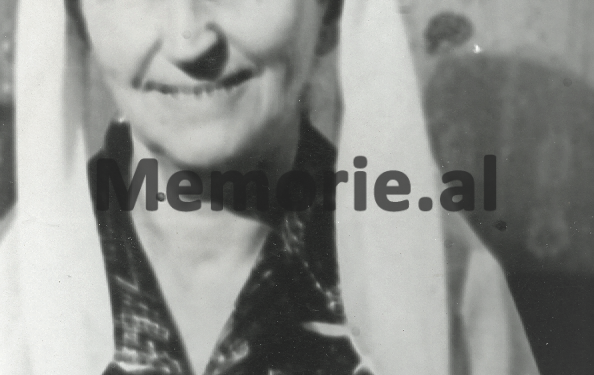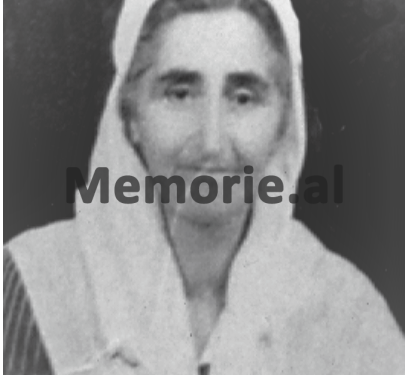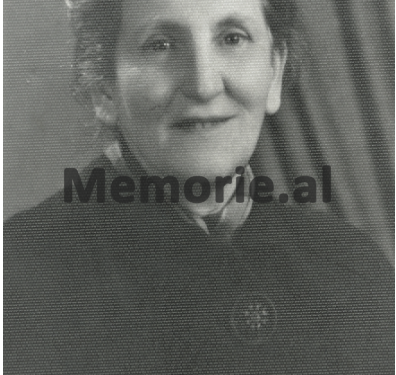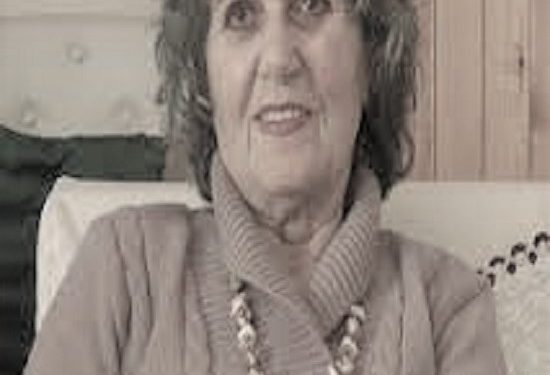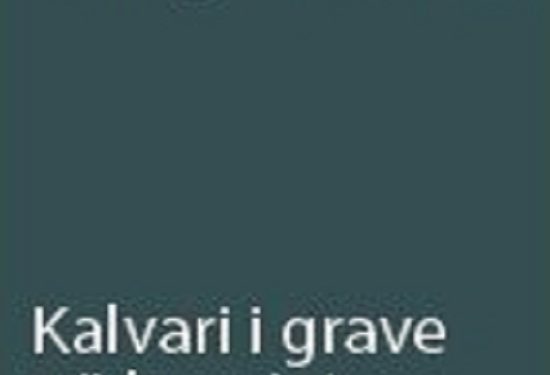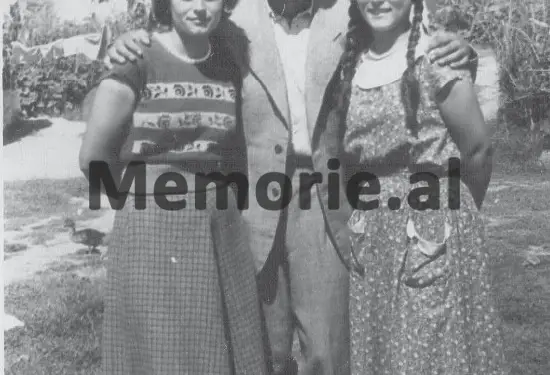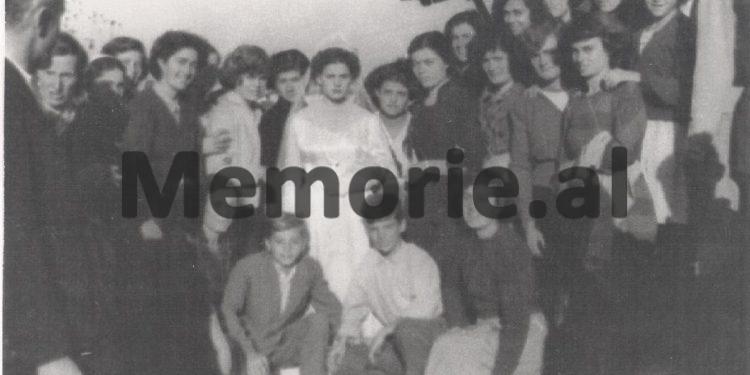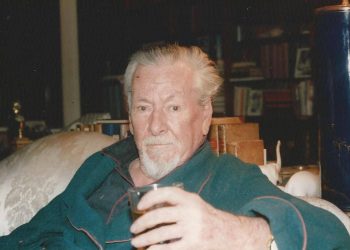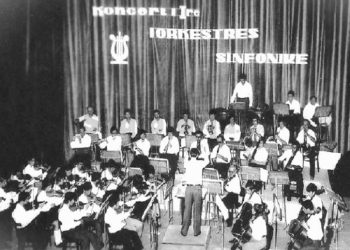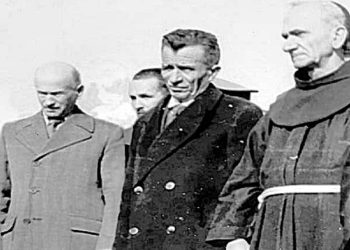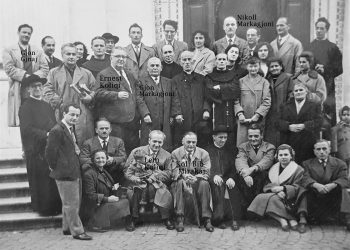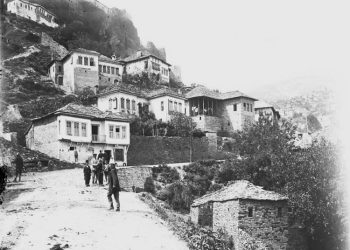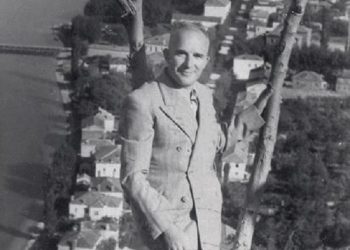Fatbardha Mulleti (Saraçi)
Part ten
Memorie.al/ publishes some parts from the book ‘Calvary of women in the prisons of communism’, by Fatbardha Mulleti Saraçi, (granddaughter of the famous former mayor of Tirana, Qazim Mulleti), whose family since 1944 until 1991, was persecuted by the communist regime of Enver Hoxha, where Fatbardha’s father, Haki Mulleti, a former senior state administration official from the 1920s, was imprisoned and interned by his family, until as he died in the hospital of Tirana, poisoned by the State Security. In her book ‘The Calvary of Women in Communist Prisons’, which is the fruit of several years of work, the author has masterfully described the unknown stories of some of the Albanian women and girls who suffered in prisons and internments in the dictatorial regime of Enver Hoxha, started by her mother, Pertefe Mulleti, and in turn: Marie Deda, Hajrie Kazazi, Kushe Seknej, Mrike Pali, Zyliha Rusi, Roza Jakova, Fatime Dilaveri, Hatixhe Pipa, Marije Gjoka, Angjelina Topalli, Hatixhe Kopliku, Nafije Kop Bushati, Budije Bushati, Adile Kazazi, Antonela Dostanishta, Nafije Stërmasi, Luçije Saraçi, Adile Meta, Qeuthere Meta, Feride Damnori, Vitore Ashta, Fetije Vuçiterni, Zehnije Gjylbegu, Xhyhere Kazazi, Luçije Malaj, Leadije Kazazi, Sadije Kazazi Hava Repishti, Luçije Kurti, Rukije Bushati, Shaqe Logoreci, Qamile Myftija, Marie Ndokëllia, Rozë Çefa, Çile Staku, Shaqe Marku, Lajde Arapi, Lutfije Barbullushi, Syme Muka, Zenepe Kraja, Fahrije Kazazi, Naxhije Plari, , Lizë Vukeli, Bade Kjaraj, Hava Baçi, Xhehadire Boriçi, Vitore Kalaj, Katerina Benusi, Sofije Baja, Lenë Pjetri, Dava Markagjoni, Mrika Markagjoni, Marta Gjonmarkaj, Bardha Gjon Markagjoni, Kristina Gjomarkaj, Çelestina Pervizarki, Kune Miraka, Sultana Dine, Vera Dine, Agime Dine, Hamide Çela, Vera Dine, Kadrije Cami, Sanije Sulaj, Meliha Sulaj, Vashe Kola, Prena Llesh Gjeçi, Gjystina Seku, Ilda Melgusha, Agime Pipa (Aranitasi), Terezina Pali, Liza Pali, Adile Boletini, Nasibe Kazazi, Ana Daja, Dila Zef Ndoja, Zyraka Mano, Shanisha Dosti, Zojë Gjeloshi, Drane Stakja, Elena Luli, Sabiha Kasimati, Marije Deda, Marije Shllaku, Biçe Pistulli, Sadije Kazazi, Gjyzepina Çoba, Marta Doda , Frida Satedini, Vitore Kuka, Gjela Llesh Biba, Bardha Cub Marku, Liza Llesh Mali, Bardha Mark Bushkola, Marije Tuci, Olimbi Baruti, Angje Kovaçi, Bedrije Ashikja, Musine Kokalari, Motër Gjeorgjina, Liljana Radovani, Laura Keqi, M Mrike Zadeja, Angjelina Shantoja, Naime Koçi, Sheriar Sefa, Vitore Shllaku, Liza Gjon Voci, Nina Shiroka, Laje Mehmeti (RRema), Feride Beshiri (Quku), Hasije Ulqinaku (Quku), Sofije Kali, Çile Gjush Larja, Nurfezo Koprencka, Sanije Gjylbegu, Emilja Shest Bregu, Vida Radovani, Nedrete Pipa, Motrat e Osman Kazazi, Safete Jusif Sokoli, Çiljeta Simoni, Lutfije Buashati, Sadije Bushati, Olga Schëeizer Libohova, Evelina e Ndoc Naraçi, Geraldina Apony-Zogu, Hilda Zyma. Marie Rafael, Zade Muka, Rukije Bushati, Hajrie Vrioni, Emine Gjyrezi, Xhemile Beqir Komi, Hedije Dume Repishti, Syme Muka, Fetije Vuçiterni, Sebije Puka, Marjeta Serreqi, Dhurata Sokoli, Klara Miraka (Merlika), Asi , Liri Cenaj, Rudina Dema, Adelajde Miraka, Drane Jakja, Syriha Hasi, Aishe Gogaj, Luçija Kaçaj, Gjyljana Malaj (Pervizi), Nadide Kasaruho, Nadire Kërçiku (Peshkëpia), Shpresa Ballolli (Merdani), Makbule Frashëri, Misly Çrash Dervishi (Leka), Natali Arkandi Rozengolc (Pengili), Vigelmina Vitalij Kovaleshko (Veshi), Rukije Rama, Tefta Tasi, Liri Lubonja, Kozara Kati, Shpresa Ngjela, Vera Bekteshi, etc.
Continued from the previous issue
Syme Muka
(1905 – 1979)
She was very young when she married Shefqet Muka. He came from a family (Barbullushët), known for patriotism. He also found it where he took root. It was her husband who melted the fortune for the national cause (1920) when the Italians were thrown into the sea. Then he headed the Vorfnore Shelter of Tirana. With her Symja lived a happy life. It was fortunate for the man to have such a wife: she was calm and beautiful, gentle and sweet, loving, hospitable and devout believer. As in the beginning, as in the end, without hearing the cry. The liveliness and joy that the children give filled the house.
With the occupation of Albania by fascist Italy, he was interned in Elbasan. Until the end, he remained an enemy of foreign dictatorships established in Albania. Organized and led the armed legality gang in the Shkodra region. He remained an enemy of the dictatorship that was looming on the Albanian horizon.
As soon as the communists took over the reins of the state, it became illegal. Then, as if the country had turned back centuries, the communists took his family hostage. A woman and five children (3-15 years old) were isolated in Shkodra prison. Six months in a row, then another year and a half in exile in Berat. How did he spend and cope with this time? She, the children and a God knows.
After the surrender of her husband and his sentence of 20 years, she returned to Shkodra. The house was looted by State Security officers with foundation. The only one at the crossroads. What did he do to you? Do what hundreds of thousands of women and girls did. He became a man and fought with his life. Step by step with time. Face to face with the difficulties.
Tooth to tooth with evil. And won. Challenged the persecutions of of poverty. Raised and educated children. And he kept the house open.
Followed the man wherever he suffered the long sentence. He followed her and held her, with the opportunities he had, in the palm of his hand. And waited. Wait without getting upset, without complaining, without crying. With hope in God.
It was the beginning of September 1965, when the family was reunited. He found the children to grow up honest, hardworking and honored by all who knew them. His heart was filled with a fervor of gratitude for the woman, the true companion of life.
After a year he died. The prison had done its job.
Then, surrounded by children and relatives in bed, she closed her eyes and remained in everyone’s hearts forever. A life full of suffering and hardship was closed, leaving behind the children who loved, honored and adored him.
Zenepe Kraja
(1913 – 1998)
He was born in Shkodra to a family from Ulcinj, which could not bear the Montenegrin rule, and settled in Shkodra. When she was 18 years old, she married Hafiz Ali Tarin (Kraja), a well-known cleric; we graduated in several fields and listened to them. Above all he was a democrat, realist and foresighted of the future of our people.
As an anti-fascist he was exiled by the Italians to Porto Romano, leaving his wife and two children at home. It was just as anti-communist they decided.
For two years it was his wife, Zenepja, who knew how to hide him so beautifully that no control found her. After two years he benefits from the amnesty and surrenders. But this was the game of the communists, who, not only did not leave him alone, but sentenced him to death, a sentence that was gradually reduced to 20 years. This was the first blow. Then came the confiscation and the family plunged into deep poverty.
How to live? It was the question that was posed to all families, especially those who had people in prisons.
He was forced to do all kinds of handicrafts (quilt sewing, making handkerchiefs for highland brides). He also went to work in the town of Bajram Curri, always fearing that the police would catch him doing private work, which was considered an economic crime. That’s how he raised the children, that’s how he educated them, as much as they were allowed. This is how she followed her husband in the prisons of Shkodra, Tirana, Maliq, and recently (10 years) in the infamous Burrel. Always with the aim of earning enough to go to her husband and ease his suffering. Always with food, underwear, medicine. She was the real heroine; so wordless, full of will, orderly, clean, she would travel, like her friends by chance to meet her “fate”. The second 10-year-old was the hardest. Age was doing its job; at that time the road to Burrel passed through Rrëshen. Wherever they left the cars, they were obliged to continue on foot.
He often took the children who were growing up without a father to get to know him. They knew the prison from the books (they talked about fascist prisons). Now they also recognized the communist prisons…
How did she cope with this situation, because she was also raising children? With continuous work and great savings. In 1965 her husband was released. Now the two old men are reunited. They were happy, that they could already survive less than one roof. But he was never given the title “enemy”, “declassed family”. That year the library was robbed. From that moment, Hafiz Ali Tari isolated himself and did not leave the house, until 1974, when he died.
She still did not give up. Both mother and father. Both man and woman.
Today she is 83 years old; we are stuck in bed from paralysis. 50 years in constant motion full of suffering, were not few.
Fate reserved for him the great happiness to see the ramie of the communist dictatorship, to see with a calm soul how his grandchildren, who love him so much, grow up.
Fahrije Kazazi
(1915 – 1991)
She had everything her heart wanted. She was married to Sabri Kazazi and had four healthy and beautiful children. The economic situation was very good. The perspective for the children was open. There is no better. But the War came and it brought the communists to power, with whom the Kazakh family never reconciled. Even the communists wanted a cause; many times they even created it to eliminate the nationalists. This is what happened to Sabri Kazazi.
Immediately after the failure of the Postriba Movement, the ‘Sword of Damocles’ fell on the families of the Kazakhs. On charges of participating in that Movement, Sabriu is sentenced to be shot, a sentence reduced to 25 years in prison.
The pillar of the house now became Fahrija. He also became a father to children. Many tasks for a woman, many difficulties to pass. It was not a year or two. There were 25. There were pressures of all kinds. There were also “tips” to divorce the husband; that “he is inside and more does not come out of there, because he comes out”, but she was so strong that he despised them with disgust. Such was the dictatorship, that in various forms, it did not allow this woman with so much trouble, that she could see her mother dead…!
The comment is redundant.
He had to face everything himself. Gradually even with the help of children, who became so hardworking and so good. Although they worked in the most difficult jobs, even though they were persecuted in many ways. To live, after that savage confiscation (“they even took our mattresses”), “it was sold and leaked”, as the people say. She was not alone. Many housewives were forced to do. There was no other way. Then all that was left was the sweat of his brow that was shed like rain to break stones in the quarry, to wipe the city streets, or to clean the canals. Day by day until he retired.
At this time, her husband also served his sentence and returned home, which he found different, very different from what he had left. The children did not have better luck either. “We worked on the farm,” says the daughter, “and only the round trip took three hours, not counting the eight hours worked.” They also tried other “easier” jobs, such as preparing the zug, construction, etc., which, thanks to the total mobilization, they faced, without blushing, just as they faced the tense situation that surrounded them.
They were never praised, even though they worked well; they were never rewarded, even though they deserved it. They were “they”, “enemies”, even dangerous.
Such were her children, whom she raised and educated. She died 5 years after her husband, without seeing the triumph of democracy, at the foundations of which is its sweat.
Naxhije Curri
(1910 – 1993)
It was in the civic tradition for girls to embroider their own dowry. There were many cases when, among other things, the figure of the Albanian wandered with two heads on the red cloth. It was a gesture of patriotism. It was an indicator of commitment to the national cause. He prepared one and took it to the house of his husband Naxhija, Dan Hasani’s daughter, when she married Shaqir Curri, Bajram Curri’s grandson. Today Naxhija does not live, but her daughter keeps as the most beautiful memory exactly this flag, and through it, she remembers the life full of water of her mother.
Nandori of 1944, ruined the life of this family. Shaqiri was a “persona non grata” for communists, traditionally he, like all nationalists, was for the unification of Kosovo with Albania. After arresting him, they handed him over to the Serbs, who, after judging him, sentenced him to 21 years. They send him to Nis prison. We separated you alive: he in the foreign prison, here in the prison that had an area of about 30 thousand square kilometers.
How could he feed his children but sell his household goods little by little? And when they were finished, did not he work in very heavy processes? How could she know what her husband was doing to the Yugoslav prisons? Was he alive or dead? Had she received her letters or not? Especially that photo of her where she had written “Xhija remembers you with longing as a sign of old age”. There was no way to help him, but he was torn to pieces to ease the suffering of his father, who was sentenced to 7 years, to two brothers, one with 10 and the other three times in a row with 15 years. Two others were in exile, wanted for 50 years. Always wanted and without the clumsy. But she had inherited the pride of the family, her strength, her faith in God. They were the source of her strength. With that strength she coped with all situations.
They met her husband only in 1965, when he was on the verge of retirement. 20 years without being seen. It took them another 20 years to tell each other their past troubles. They continued life in conditions of complete poverty. She managed to see how the dictatorship breathed life, luck that her husband did not have. Then when he wished to see a little more, he died. Memorie.al




